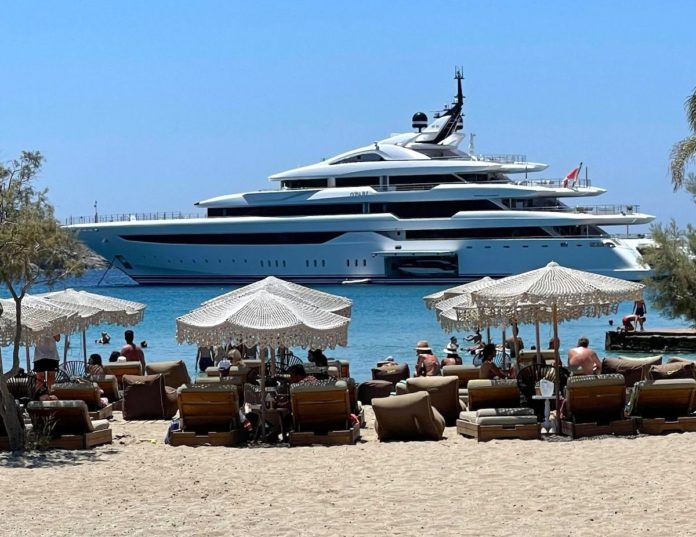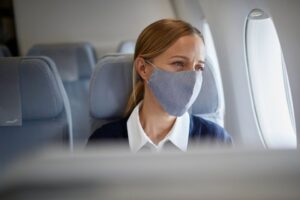
On Tuesday, Germany’s Robert Koch Institute listed parts of Greece – including tourism magnets the Greek islands – as high-risk areas for Covid-19 because of the rising numbers of infections reported there.
The German medical authority officially placed Crete and other extremely popular Greek islands such as Rhodes, Mykonos, Kos, and Naxos, “high incidence areas” for the virus.
All those returning to Germany from these Greek islands must now quarantine for ten days if they cannot provide proof of vaccination or recovery from the coronavirus, according to the public health body.
However, travelers’ quarantines may be curtailed after five days if the person in question shows negative results from a Covid-19 test.
Greek tourist destinations see spikes in Covid-19 — along with the rest of the world
As Europe and the rest of the world grapple with the Delta variant of the virus, Germany has tightened its travel rules in recent weeks.
Germany itself has experienced a spike in coronavirus cases, with last week seeing its highest daily number of infections in three months. The number of active cases climbed to 79,400 on Tuesday, up from 50,400 a week earlier.
Pointing to the risks involved in traveling abroad, the number of new cases has risen the most among teenagers and young adults, with nearly 25% of the patients becoming infected abroad, according to the Koch Institute.
Self-tests will cost ten euros for all except schoolchildren
Also on Tuesday, the Greek government handed down new rulings on the coronavirus, with Health Minister Vasilis Kikilias stating that the new rules for areas of work, entertainment, culture, travel and sport will be different for vaccinated and unvaccinated individuals.
Those who are unvaccinated will have to provide certificates showing a negative PCR or rapid test or a certificate of having had Covid-19 — all of which they will have to pay for themselves.
He said the costs of the tests will be 10 euros, except for school pupils, who will have to perform two self tests each week.
Kikilias also announced that public health facilities in Greece will no longer perform free Covid-19 tests for the unvaccinated, who must now go to private diagnostic centers for such testing.
The sanctions for failing to comply with the requirement to submit to testing will be suspension from work for employees, forbidding school children to attend school and not allowing individuals access to means of travel.
The Health Minister announced the strict new measures while stating that the government has an obligation to ensure as smooth and safe a transition to normality as possible after the pandemic, in light of the fact that the option of vaccines now exists.
“Unlike in autumn last year, when humanity was confronted with Covid-19 without other defenses apart from the known protection measures, this autumn each of us can protect themselves and protect others,” he stated.
“For eight months we have had vaccines available and we have a choice that we did not have before…the hospital data for the past two months shows that we are talking about an epidemic for the unvaccinated as far as illness and intubation are concerned,” Kikilias noted, adding, that over 90 percent of patients suffering from Covid-19 in ICUs are unvaccinated.
Kikilias also announced that hospitals will no longer prioritize spaces for treating Covid; they will rather serve all patients without regard to which ailment they are suffering from.
He underscored that vaccinations must continue in order to reach the 80 percent inoculation rate in Greece — which means that another one million citizens must be vaccinated.
The Minister added that Greece’s suspension of unvaccinated healthcare workers will go ahead in September as planned, and that mandatory vaccination concerns both the private and public healthcare sector, including private doctors and pharmacists.



